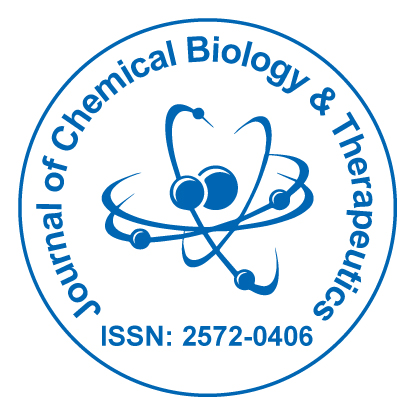Review Article
Gastroprotective Activities of Buddleja scordioides - Role of Polyphenols against Inflammation
Díaz Rivas JO, Rocha Guzmán NE, Gallegos Infante JA*, Moreno Jiménez MR and González Laredo RF
Department of Chemistry and Biochemistry Ings, UPIDET, Durango, Mexico
- Corresponding Author:
- Gallegos Infante JA
Department of Chemistry and Biochemistry Ings, Durango Institute of Technology, UPIDET, Durango, Mexico
Tel: 526188186936
E-mail: agallegos@itdurango.edu.mx
Received Date: Jun 13, 2016; Accepted Date: Aug 25, 2016; Published Date: Aug 29, 2016
Citation: Díaz Rivas JO, Rocha Guzmán NE, Gallegos Infante JA, Moreno Jiménez MR, González Laredo RF (2016) Gastroprotective Activities of Buddleja scordioides-Role of Polyphenols against Inflammation. J Chem Biol Ther 2:109. doi: 10.4172/2572-0406.1000109
Copyright: © 2016 Díaz Rivas JO, et al. This is an open-access article distributed under the terms of the Creative Commons Attribution License, which permits unrestricted use, distribution, and reproduction in any medium, provided the original author and source are credited.
Abstract
Medicinal plants show great interest today because of its multiple physiological effects. They contain a diversity of chemical compounds, phytochemicals, with demonstrated important biological activities. Buddleja scordioides Kunth is a plant that shows a wealth of important phytochemicals, which could contribute towards the prevention of various health problems such as gastrointestinal disorders. The main causes of gastrointestinal pathology are mediated by inflammatory processes caused by several factors. B. scordioides HBK (KUNTH) is commonly used for the treatment of diarrhea and stomach pain (colic). Several studies shown presence of flavonoids such as rutin, quercetin and quercetrin and kaempferol (also found in Buddleja genus). Other isolated compounds include some hidroxicinnamic and hidroxibenzoic acids, verbascosides, siringin, some iridoids, sesquiterpenes and fenilpropanoids. All of them related with anti-inflammatory activity. The present review is an opinion of the state of art anti-inflammatory activity of B. scordioides and gastrointestinal disorders.

 Spanish
Spanish  Chinese
Chinese  Russian
Russian  German
German  French
French  Japanese
Japanese  Portuguese
Portuguese  Hindi
Hindi